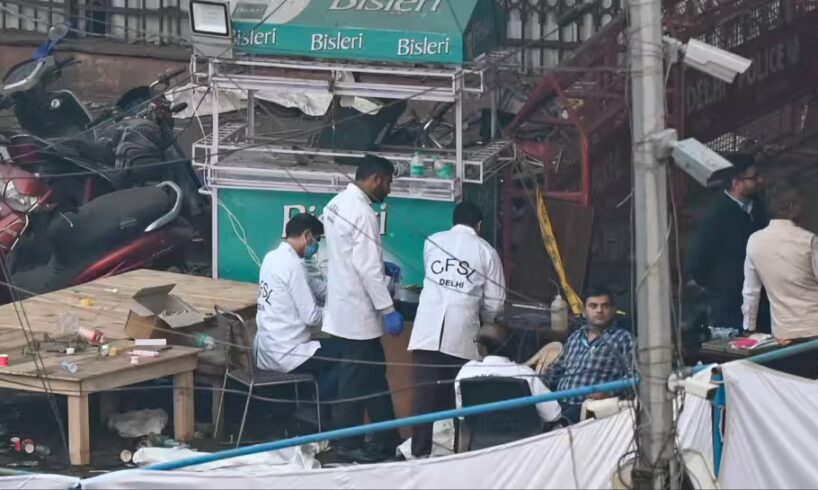
The probe into the November 10 car blast near the Red Fort has revealed a pattern leading to the operation and radicalisation of what was allegedly a sophisticated terror module linked to Jaish-e-Mohammed, with sources in Turkey. Security agencies are closely looking at whether Turkey is becoming a new epicenter for anti-India terror activities on lines similar to some aspects of the role played by Pakistan in the past.
The two prime suspects in the blast, Dr. Umar Mohammed and Dr. Muzammil, were reportedly in contact with a handler identified as operating from Ankara, Turkey, using a session-based communication app. This handler is believed to operate under the codename ‘Ukasa’.
Turkey Trip And Radicalisation
Add Zee News as a Preferred Source
According to crucial evidence, a foreign link is evident since the two suspected terrorists had recently travelled to Turkey.
Immigration Stamps: Turkish immigration stamps were found in the passports of Dr. Umar Mohammed and Dr. Muzammil by investigators, confirming their travel to the country.
Meeting with the Handler: The visit is believed to be where the two doctors met their handler, ‘Ukasa,’ and where significant radicalisation of the group members occurred. The group had already joined the Telegram application around March 2022, prior to their trip to Turkey.
Planning After Return: Following the visit to Turkey, these terrorists targeted places such as Faridabad and Saharanpur in India and subsequently spread across the country to carry out their operation.
Data Analysis: Police are analyzing mobile tower data dumps from the Red Fort area to check whether or not Dr. Umar communicated with anybody in Turkey between 3:00 PM to 6:30 PM on the day of the blast.
Ankara Denies Charges as Position Shifts
The government of Turkey has categorically denied any involvement in aiding terrorists against India and reaffirmed its commitment to cooperation in fighting global terrorism.
Official Denial: Turkey said it condemns all manifestations of terrorism, “rejects terror in all its forms,” and is at the forefront of the struggle against it. It denied the allegation that it radicalises elements targeting India as “completely false” and lacking factual basis.
The diplomatic dialect of Turkey towards India has come under scrutiny in recent times, despite the denial. For example, while referring to the Delhi blast, Turkey termed it simply as an “explosion,” while another blast in Islamabad during the same period was termed a “terrorist attack.” Turkey also shared only a diplomatic statement regarding the Indian incident, compared to solidarity with Pakistan in its anti-terror fight.
Erdogan’s Kashmir Policy and Pakistan Alliance
Actions by the Turkish government on Kashmir and its deep military alliance with Pakistan continue to raise concerns in New Delhi.
Kashmir Stance: The Turkish President Recep Tayyip Erdoğan has been raising the Kashmir issue at international forums since 2019. Speaking at the UN this year, Erdoğan called for the issue to be resolved through dialogue based on UN Security Council resolutions and the “aspirations of the Kashmiri people,” a position strongly condemned by India as interference in its “internal matter.”
Defence Partnership: Deepening Turkish-Pakistani defense and military cooperation is highly concerning to India. That includes drone technology transfer, such as Bayraktar TB2 and Songar UAVs, naval cooperation, and deployment of Turkish military equipment on India’s borders.
Strategic Counterbalance: The development of India’s relationships with Turkey’s regional rivals, particularly Greece, Armenia, and Israel, with regard to strategic defense and diplomatic relations, has been pursued as a means of counterbalancing the influence of Ankara.
ALSO READ | Delhi Red Fort Blast: How Did A Prayagraj Medical Gold Medalist Dr Shaheen Become A Commander In A JeM-Linked Terror Module





